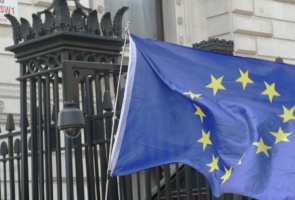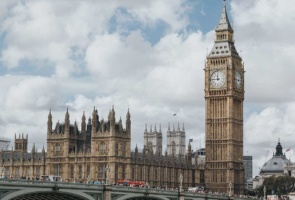
On 3rd August, the Prime Minister wrote a letter to all members of the Conservative Party defending the Government’s White Paper.
Unfortunately, the letter fails to address several key points and shows that the Government’s plan does not implement the will of the British people.
1. The British People will not be able to take back control
The White Paper does not ‘respect the result of the referendum’ and does not give us control of our borders, laws and money. Ultimately everything depends on our democratic self-government. this means making all our laws, political and economic, in our sovereign parliament and adjudicating and interpreting them in our courts – as the Prime Minister proposed in her Lancaster House speech of January 2017. Tragically, this is not where we are now.
Borders
This deal would prevent taking back control of our borders. Instead, free movement will be replaced by ‘reciprocal mobility arrangements… with other defined provisions’ and ‘the principle
of non-discrimination between existing Member States’. This is dangerously close to free movement in new words. Non-discrimination may also allow migrants to claim benefits for their families at UK rates.
When the Prime Minister writes that ‘EU citizens will no longer have the unfettered ability to come to the UK to seek work’ [our italics], this means they will generally still be able to come to the UK to seek work.
Laws
The deal would prevent control over laws, because it will mean a ‘common rulebook’ for goods, with ‘consequences’ if we diverge. It includes threats of ‘action’ that may result if we do anything to gain an ‘undue competitive advantage’ – in other words what any normal independent nation should be able to do.
This rulebook means being under all EU laws for goods. But in reality, it means rules for much more, because these rules will cover areas like competition too. It will be decided by majority vote of the other 27 Member States, behind closed doors and with no written record. The UK will not be at the table. The Prime Minister promises a ‘parliamentary lock’ so that our parliament can veto rule changes. But in practice this will be impossible. Norway received a similar promise but cannot diverge from the EU due to threats of consequences.
Money
The Prime Minister writes there will be ‘no more vast annual sums paid to the EU’. But there will still be very considerable annual sums.
The ‘Brexit bill’ alone would be around £35 billion (four years’ worth of net budget contributions). But this depends on the EU agreeing a deal: so that means being made to pay for a bad deal.
Afterwards, the deal would prevent control over money because it commits us to continuing annual contributions to things like EU aid, and contributing to defence funding and coordination, which even Jean-Claude Juncker admits are intended to create an EU ‘common army’. This is what the Prime Minister means by ‘we will continue to cooperate on security matters’ in her letter. This is an attempt to molify the EU.
2. The Government’s White Paper will maintain EU control over Britain
The Prime Minister says the White Paper is driven by the need to ‘put forward proposals they find credible’. But this is the wrong approach. The UK has done nothing wrong by leaving – the point of Brexit is to restore our independent democracy, not to propose things that satisfy the EU.
The Prime Minister states that the plan takes ‘differing voices’ into account and is a ‘compromise’. However, the White Paper is a compromise simply because in many ways it means we will remain under the EU. The White Paper will prevent independent trade deals and the ‘common rulebook’ is unnecessary.
The Government has admitted that we will keep single market regulation in goods, but this will also mean other regulations too. When the Prime Minister says we would not want to ‘drop’ standards anyway, she does not mention that we would not be able to improve them either.
The Prime Minister writes that Britain would be in a ‘free trade area’ in goods with the EU. But free trade does not need harmonised regulations. She claims that this ‘common rulebook’ is needed to ‘move goods without checks’, and that ‘businesses would not need to complete costly customs declarations’. But this also does not need require common rules. Any small border frictions that remain will also be outweighed by the tremendous opportunities for growth out of the EU.
This EU regulation is getting more burdensome, so it is particularly urgent that we make our own rules and laws again. This plan would prevent that. Chequers will tie our economy and our future to the EU indefinitely.
The White Paper admits that if Parliament tries to make other rules, it will face ‘consequences’. Britain would be under EU rules but without representation in its institutions. We would be handing the EU power over large parts of a major competitor’s economy – our own – and its entire manufacturing sector.
The EU would have every opportunity to make regulations that discriminate against our companies, and in favour of their own. Even within the EU, Sir James Dyson has described how EU standards discriminate against his innovative products. The Prime Minister claims that ‘the last substantial change’ to these regulations was in 1987, but this is inaccurate. The framework remains the same, but the EU has created thousands of goods-related regulations since then.
The Prime Minister writes: ‘We will leave the Common Agricultural Policy and Common Fisheries Policy’, but we will not escape EU agriculture regulation, and the White Paper admits that we ‘will continue to work with our European partners to regulate fishing’. As the EU negotiation guidelines link a trade deal to ‘maintaining existing reciprocal access on fish’, this is likely to mean giving foreign boats access to British waters.
The White Paper admits our country will have to ‘respect the remit’ of the ECJ. Britons may be subject to European Investigation Orders, and UK participation in Europol means being in a body that is expanding, under ECJ jurisdiction, and which the EU can use to request Member States start police investigations.
3. The PM’s letter on Brexit does not deliver for the British people
Speaking to The Sun on his visit to the UK in July 2018, President Trump said: “If they do a deal like that, we would be dealing with the European Union instead of dealing with the UK, so it will probably kill the deal”
The US Ambassador to London Woody Johnson has said that a UK-US Free Trade Agreement is now “up in the air” because of the White Paper. New Zealand’s former High Commissioner to the UK Sir Lockwood Smith has said that if we follow the White Paper, we “can forget global Britain”. On not making our own rules, a Canadian former ambassador to the WTO has stated: ‘either you have the freedom to strike trade deals and manage an independent trade and regulatory policy, or you don’t.’
The letter does not acknowledge that there is a better alternative.
The UK could negotiate a free trade deal similar to that between the EU and Canada, but with the addition of special rules that would allow British financial firms to retain their automatic access to European markets. Such a deal has been labelled ‘Canada +++’
Leaving the EU on WTO terms would allow the UK to make its own laws, agree trade deals with the world outside the EU, and set our own course for a brighter future. It would also prevent undue retaliation from the EU.
Despite the Prime Minister’s claims that ‘we would still be able to make a competitive offer to new trading partners’, the Chequers plan would actually deny the UK the freedom to do independent trade deals, because regulations need to be on the table in negotiations, and we would not have control over these.
The White Paper deal is also unnecessary to avoid a ‘hard border’ for Northern Ireland. Both the UK and Republic of Ireland customs authorities have stated that the necessary technological solutions exist without one. Irish PM Leo Varadkar and Commission President Jean-Claude Juncker have both said that even in the event of no deal, there need be no hard border in Ireland.
The White Paper would see Britain unrepresented in the EU’s law-making institutions but forced to abide by its rules. This means Britain would be governed, to a great extent, by someone other than the British people. So the White Paper is not what anyone would recognise as Brexit – but it is also completely unnecessary. Moving to WTO terms would be a perfectly normal relationship between the two sides.
The 2017 Conservative manifesto bound the Conservative Party to fully leave the European Union. This is not where we are now. Please feel free to circulate this letter to members and your constituents to assure them that the Prime Minister has alternatives, and that if the bullying stance of the EU continues we can leave on 29 March 2019 with either Canada +++ or WTO terms.



